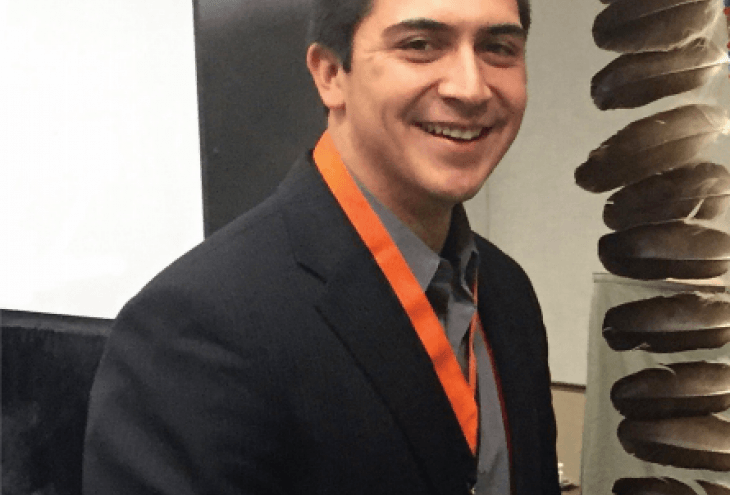Michael Charles, a brand-new graduate of Cornell University, has always applied himself. But he hasn’t always been sure of his path in life. After graduating from Longmont Christian High School in Colorado, Charles, Navajo, hadn’t decided on a direction for his studies. “I wasn’t sure exactly what I wanted to do, but realized that I have strong math and science skills,” he explains.
Even though those skills seemed to be pushing him toward engineering, he was apprehensive until his mentor intervened. “I had a mentor who is a chemical engineer and who pushed me to try it, so I came to Cornell planning on being an engineer,” says Charles. “I took a couple of intro classes and decided I really like engineering and wanted to stick with it.”
Still, his transition to college was not entirely smooth, and Charles quickly realized that Longmont Christian High School and Cornell were going to offer completely different challenges. “Coming from a high school class of 18, I ended up in my first college chemistry class with about a thousand students,” says Charles, reflecting on his initial experiences at Cornell. “I felt weird being in a class where the professor didn’t know who you were. Now instead of a personal relationship, which is what I had experienced since elementary school, you were a number on a sheet.”
Despite the adjustment challenges and difficult course work, Charles adapted to the university and was determined to make the best use of his time. “My first year was all about learning how to learn at Cornell,” he recalls. “This meant finding people in the class to talk things through with, reading the book a little bit more than just sitting in lectures, and finding outside resources.” His readiness to adapt made for a smoother path through college, and modifying his previous style of learning prevented him from losing his way among hundreds of other students. Sometimes his new study habits even meant teaming up with these students. “It was something I never really had to do in the past — reaching out to other people for help when I really needed it,” Charles explains. “But it was all part of learning how to do Cornell.”
Now with a positive undergraduate experience to his credit, including a minor in music, Charles has decided to continue toward his doctorate. Much of the foundation for this decision was built by his involvement with AISES, especially the 2015 Leadership Summit. “I had lined up industrial internships for the last two summers, and I was set to find a place to go work after graduation,” he says. “But after talking to some people at this Leadership Summit I decided to look into PhD programs instead. The choice was shaped through AISES conferences and the people I’ve talked to at Cornell as well.”
Charles also plans to put his doctorate to work after he graduates. He has huge career ambitions, which a PhD should only further. His first destination, says Charles, is energy research: “Particularly, I want to work with tribes and reservation lands. I want to bring new research to the field to help reshape tribal energy laws and show the different challenges that might prevent American Indian energy industries from booming. Hopefully, I’ll contribute to a better economy and bring cleaner energy and, most important, a better lifestyle.”
Charles has already begun work toward these goals. During a trip to Mumbai, India, on an international research grant, he walked into the kitchen of a local school, which burned wood for fuel, and saw that the smoke forced some of his classmates to step out just to breathe. Not only was the fuel expensive and inefficient, but it also came at a high cost to health. Charles and his classmates took on a mission of replacing the school’s entire firewod cooking system with a safer, more sustainable biofuel. They developed a biodigester that broke down the manure of local dairy cows into biogas — mainly methane and carbon dioxide. With the output of the biodigester, the kitchen could more efficiently and safely feed the school’s roughly 800 students. The stoves now can run for two hours a day on the biogas without affecting the manure’s use for fertilizer after the solids leave the biodigester.
Charles has found much satisfaction in applying himself like this in ways he had not imagined. “I come from a smaller community, and it was definitely overwhelming to meet new people,” he says. “Breaking out of my comfort zone, talking to new people, and taking classes that aren’t in my major set me apart from other chemical engineers. Everyone goes through the same curriculum, but finding ways to distinguish myself made my experience unique.”
As Charles prepares to enter a PhD program in chemical engineering at Ohio State University, he can’t let the fear of something new slow him down. “I hear of something that’s difficult, and that attracts me,” he says. “Even if I don’t succeed the first time, I still come out on top.”













